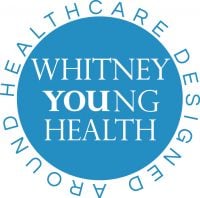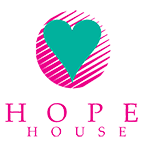820 River Street - Halfway House
Drug Rehab Center in Troy, New York
- Substance Abuse
- Opioid Addiction
- Alcoholism
River Street - Halfway House is an accredited rehabilitation center in Troy, NY providing evidence-based services which include outpatient, inpatient and intensive outpatient programs, a range of therapies, and aftercare services to individuals dealing with alcohol abuse, substance abuse, and opioid addiction.
About 820 River Street - Halfway House in New York
820 River Street - Halfway House, a non-profit rehab in Troy, New York, specializes in helping men recover from substance addiction. With a focus on offering hope to the impoverished and addicted, this facility provides comprehensive addiction treatment and supportive living programs.
• Dedicated to serving men struggling with substance abuse and addiction
• Offers a range of levels of care, including outpatient, inpatient, intensive outpatient, and sober-living/halfway
• Provides various therapies, such as group therapy, trauma therapy, individual therapy, life skills, recreational therapy, and experiential therapy
Accredited by the Substance Abuse and Mental Health Services Administration (SAMHSA), 820 River Street - Halfway House is committed to providing effective and safe care to individuals dealing with alcohol abuse, substance abuse, and opioid addiction.
The experienced staff and counselors at 820 River Street - Halfway House utilize evidence-based practices to deliver individualized support, addressing specific addictions and issues. They offer a continuum of care, including outpatient, inpatient, intensive outpatient, and sober-living/halfway programs, along with aftercare services to support long-term recovery.
Genders
Ages
Modality
Additional
Accreditations
SAMHSA
Conditions and Issues Treated
Many people need to recover from substance abuse to live a healthy life. In the end, if you can get through all the steps: detoxifying your body, rehabilitation after some time or when needed (depending on the type), and recovery while also receiving therapy support throughout the process, it can be worth it.
A detoxification center is a common place to start the recovery process from substance abuse. With your body and mind restored, you can continue to heal without the lingering effects of drugs.
Many people who struggle with opioid addiction need to attend specific programs like methadone , Suboxone or Vivitrol clinics.
These types of programs will provide the patient with legal, prescription medications that can help them overcome their cravings for illegal opioids like heroin or fentanyl . If the patient has a chronic condition like Hepatitis C, they must undergo treatment before they can begin taking these medications.
Levels of Care Offered
This center offers a variety of custom treatment tailored to individual recovery. Currently available are Aftercare Support, Inpatient, Intensive Outpatient, Outpatient, Sober-Living / Half-Way, with additional therapies available as listed below.
Inpatient treatment is an intensive program that takes place when a patient checks into a rehabilitation facility. The treatment includes detoxification and counseling sessions, which are round the clock. Outpatient treatments are also available, but inpatient care is advised as the first step of rehabilitation.
Intensive rehab ensures the patient stays in a substance-free atmosphere, improving treatment success rates. The patient participates in group therapy for motivation from other patients who have overcome addiction. Family members are also involved in providing emotional support throughout the program.
An intensive outpatient program is usually the first phase of addiction treatment. It provides relief for those who are addicted, but are not ready to commit to an inpatient setting. Typically, the patient lives at home and is able to work or go to school. IOPs consist of a daily 3 to 5-hour program, and there is a required number of hours per week. Most patients go to IOP between 20 and 40 hours per week. The patient attends group counseling and individual therapy throughout the duration of treatment. They also meet daily with their therapist to discuss how it’s going and where they are in the recovery process.
The goal here is to teach patients healthy coping skills, such as stress management and identifying thoughts and behaviors that lead to relapse. The implementation of these skills will be useful as the individual transitions into the next phases of treatment.
An outpatient treatment program is set up to help with alcohol or drug addiction, or a co-occurring disorder. The patient must attend the New York facility for their therapy and other programs but are able to return home each night. The frequency of mandatory attendance decreases after much of 820 River Street - Halfway House‘s program is complete.
Sober Living Homes are an option for those who have completed a treatment program within the past several months. However, it isn’t advisable to use this as a permanent living arrangement because it can lead to a relapse .
The goal of a sober living home is to provide a supportive environment for recovering addicts so they don’t need to return to their previous lifestyles. The homes will not accept residents who are still using drugs or alcohol, and those living in the house must follow a set of rules dictating how they should behave to avoid relapsing.
Aftercare is a term that’s used to refer to any sort of continuing care offered for a drug addict who has voluntarily entered a rehabilitation program. This type of care can be provided in several settings, including outpatient therapy sessions after the addict has completed an inpatient program. There are also 12-step support groups, such as Alcoholics Anonymous, which can provide additional help for addicts trying to stay sober.
Therapies & Programs
Individual Therapy is a critical component of addiction recovery. Therapists work with patients to identify the root of their addiction and figure out how to better handle the issues that led to them using drugs. Individual Therapy is the one-on-one session where people meet with their therapist. Individual therapy provides a safe space for people to open up and discuss personal and sensitive topics which they may not feel comfortable discussing in a group setting.
Group Therapy is utilized by drug treatment centers like 820 River Street - Halfway House to provide the recovering drug addict with a platform to talk about their feelings and experiences. It also provides for an opportunity to learn from other addicts who have successfully overcome their addiction.
Group Therapy is employed in lectures, seminars, or discussion groups (the latter two are typically conducted as “therapy groups”). It is recommended that all group members be recovering addicts for this type of therapy to work (though it does not exclude others with lived experience).
Trauma therapy is a clinical process that helps individuals deal with mental stress often caused by traumatic events. It is generally done for children, teenage victims of sexual assault, and war veterans. The therapist helps the person identify, understand and work through the problem. This is done with the help of talking about it in group or one-on-one counseling sessions. Therapists use relaxation, role-playing, art, and music to help the person open up about what is bothering them.
Training in improved life skills helps those recovering from addiction feel more capable of self-care. 820 River Street - Halfway House are daily skills that give the person the tools they need to survive.
The therapy covers practical activities like cooking, job hunting, social interaction, and money management, helping to fill in the knowledge gaps caused by addiction.
These life skills help the person self-manage their recovery and stay on track. It also reduces relapse risk as they gain confidence in their day-to-day abilities.
Patient Experience
Experiential Therapy at 820 River Street - Halfway House
Experiential therapy is another form of treatment that helps addicts overcome their addiction. This type of service typically involves hands-on activities with the focus on physical experiences instead of emotions or beliefs.
Some examples include art therapy, equine therapy and music therapy. Each of these forms of experiential therapy can provide unique ways for addicts to channel their feelings and work through their demons. This type of therapy also allows addicts to develop meaningful emotional connections with others, which can prevent them from resorting to relapse as a coping mechanism.
Payment Options Accepted
For specific insurance or payment methods please contact us.
Additional Details
Specifics, location, and helpful extra information.
Troy, New York 12180 Phone Number(518) 272-4246 Meta DetailsUpdated April 15, 2024
Staff Verified
820 River Street - Halfway House Patient Reviews
There are no reviews yet. Be the first one to write one.
Troy, New York Addiction Information
More than 2 million New Yorkers are currently suffering from some type of substance abuse and many of those are minors. Alcohol abuse, in particular, is prevalent among those underage. As a result of the high prices and regulation of prescription drugs, many New Yorkers turn to heroin instead. This has led to a serious heroin epidemic in the state.
In Troy, NY the rate of drug overdoses was higher than the state average at 4.1%. Alcohol and drug addiction and abuse are also major problems in Troy, New York. It's estimated that 1 out of 3 who try drugs will develop an addiction to them. The drug rehab programs in Troy, NY, offer a variety of treatment options that can help you or your loved one recover from addiction.
Treatment in Nearby Cities
- Glens Falls, NY (38.9 mi.)
- Canandaigua, NY (182.9 mi.)
- Warsaw, NY (226.1 mi.)
- Montrose, NY (104.3 mi.)
- Orchard Park, NY (257.0 mi.)
Centers near 820 River Street - Halfway House




The facility name, logo and brand are the property and registered trademarks of 820 River Street - Halfway House, and are being used for identification and informational purposes only. Use of these names, logos and brands shall not imply endorsement. RehabNow.org is not affiliated with or sponsored by 820 River Street - Halfway House.




